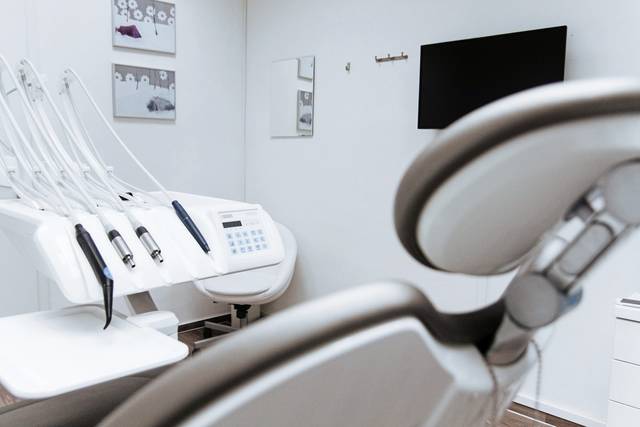Pittsburgh orthodontist David Pechersky knows he has a lot of patients who need him right now and, like many in his profession, he’s been frustrated by his inability to see them.
“I’ve got patients with braces who haven’t been seen for three or four months, because we schedule eight to 10 weeks out,” said Pechersky, an Aspinwall resident. “If you’re wearing orthodontic appliances unmonitored by your provider for four-plus months, there could be irreparable harm done.”
Pechersky and other orthodontists and dentists can go back to work now that new guidance has been issued by the state. The guidance coincided with an announcement by Gov. Tom Wolf that most of southwestern Pennsylvania will begin lifting some restrictions on business starting May 15.
Dentists will be able to perform non-aerosolizing, non-urgent and non-emergent care only if proper personal protective equipment (PPE) is available for all dental care practitioners, including dental hygienists, according to the guidelines issued by the state Department of Health.
Non-aerosolizing means no high-speed drilling, which can create a visible spray, or large-particle droplets of water that can transmit the coronavirus.
Pittsburgh oral surgeon Eric Smiga said the state guidelines send confusing and contradictory signals. He said those, like him, who specialize in oral surgery feel confident that they will be able to do nearly all of their procedures with the new guidelines that have been issued — such as wisdom tooth extraction, dental implants and surgical pathology.
However, Smiga has concerns for his colleagues practicing general dentistry.
“From a general dental perspective, it’s a contradiction to say you can start doing elective procedures but no high-speed drilling because almost all their care is with a high-speed drill doing fillings, cavities and crowns. So that really kind of talks in a circle.”
It’s not the only part of the health department’s new guidelines for dentists that concerns him.
“They talk about the need for dental care in the state, but they say they are not currently prioritizing dental practices for PPE distribution. So they’re saying we need it — but they are not giving us any help to get it,” said Smiga.
It’s all part of what has been an exasperating spring for dentists in Pennsylvania. In late March, the state effectively shut down dental practices by not allowing them to practice without negative pressure rooms — available chiefly in intensive care units — and N95 masks.
After consulting with leaders in organized dentistry, the health department revised its decision on March 26, allowing emergency procedures to be performed. But there are many other dental procedures that have been neglected, and dentists say they are ready to address them.
“I can do any procedure that I can complete without using a drill. You can get your teeth cleaned. I can re-cement a crown. I can fix broken teeth. I could do a root canal, but we would have to modify the procedure,” said Steven C. Levine, owner of a dental practice in Penn Center in Wilkins. “It may not be to the standard that people expected pre-pandemic, but at least it will hold them temporarily. The new guidelines allow me to provide some interim care that we weren’t even allowed to do up until this point. Baby steps, in other words.”
Smiga said that his office has plans in place for controlling waiting room flow and doing temperature checks. Patients also will be asked to fill out questionnaires when they come in.
“I feel that in our area, the virus cases are quite low. I’m more worried about people being afraid to come back (to the dentist) than I am about the virus itself,” Smiga said.
Levine said he feels relief and trepidation as he works to fully reopen his office.
He says he’s shooting for May 18 and that his staff is “chomping at the bit.”
“There is risk, but there is also some relief in knowing that, from the economic side of things, you have to do this to generate income to keep these offices open,” he said. “But it’s still risky because we’re in the same place we were at the beginning. We have a disease for which there is no cure. ”
Despite his worries about his colleagues obtaining the gear they need, Smiga said he feels he and his staff have the proper protective equipment.
“I feel we have what we need. If you wear your N-95 mask, you have your face shield, you have your gown, unless science proves otherwise, we’re ready to practice.”








